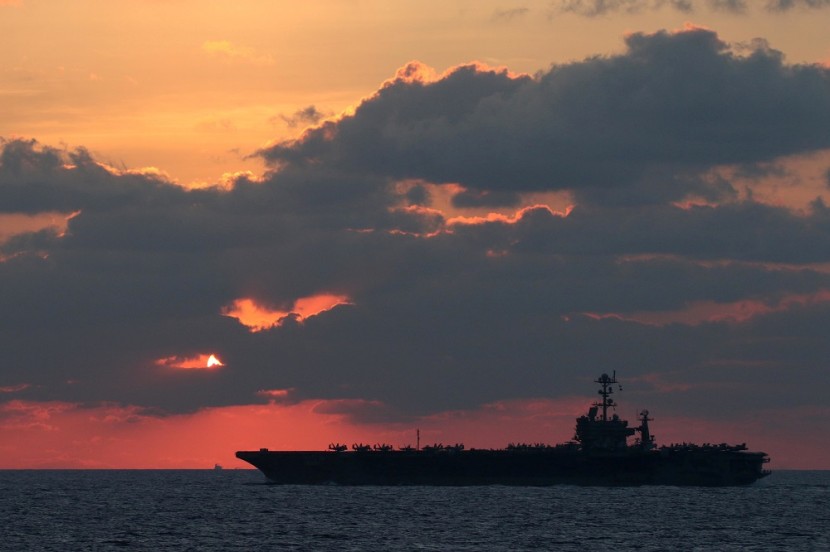
China has received caution that they should be pressurized over the United States' authority over the South China Sea. The country claims it has a significant right of ownership to nearly the whole South China Sea. The risk of World War III has increased.
Missle Threat from the US
The tension in the matter is growing after the breakdown of a missile weapons agreement. United States President Donald Trump cautioned that the US should contravene China's increasing missile inventory.
On the 2nd of August last year, America officially backed out from the Intermediate-Range Nuclear Forces Treaty. This ignited alarm that a new arms race could occur, reported Express.
China's Secret Weapon
South China Sea pressure has prompted China to deploy a "secret weapon" as antagonism with the US in the location ensues, reported another article from Express.
It has honed a remarkable military presence in the South China Sea as China contentiously tries to sustain power in the region.
Chinese Foreign Minister Wang Yi condemned the US for regional strain.
China to Work with ASEAN Members
According to Chinese analysts on Sunday, Chinese State Councilor and Defense Minister Wei Fenghe made a visit to Malaysia, Brunei, Indonesia, and the Philippines to solidify relations.
Between September 7 and 11, Wei visited the four ASEAN member countries in order to meet with their leaders. These include Philippine President Rodrigo Duterte, Malaysian Prime Minister Muhyiddin Yassin, and Bruneian Sultan Hassanal Bolkiah.
China to Use Global Crisis to Aid Territorial Authority
According to a top strategic analyst, China could utilize the current crises crippling the world's powers and increase its power over the South China Sea in the next months with the probability of WWIII with the US.
Also Read : China Shows Off COVID-19 Vaccines for the First Time, Expected to Hit the Market by Year-End
Peter Jennings, an Australian Strategic Studies Institute executive director, cautioned last April that China's intentions to acquire territorial sovereignty over the maritime territory could set forth an appalling international conflict.
US Touted as Most Dangerous Regional Threat
According to Chinese Foreign Minister Wang Yi as a retaliation against US allegations over China's actions regarding the South China Sea, Washington was the most powerful driver of militarization and the most harmful factor in damaging peace in the region.
Wang addressed a meeting of East Asian foreign ministers through video link, blaming the US of prompting frictions between China and countries bordering on the South China Sea. He also accused the US of undercutting China's efforts to negotiate contentions with the 10-member Association of Southeast Asian Nations.
US Ambassador to China Terry Branstad Steps Down Amid Tension With Beijing
According to a source, Terry Branstad is slated to step down as the United States Ambassador to China following over three years in Beijing. He is expected to leave Beijing prior to the US Presidential election in November.
Moss: China Should Be Fearful of the US Being Involved
DWF's Head of Transport, Jonathan Moss, stated that "I think it would be US influence so if the US decides to debate, negotiate and adopt the mantel for the countries," reported another article from Express.
He underscored regarding the probability of WWIII between China and the US, "If they become the parole for those particular countries I think that will be more of an issue for China because at the moment we have got this discussion and debate between the two leaders about trade deals."
Related Article : Germany Tells China to Stop Threatening Europe
© 2026 HNGN, All rights reserved. Do not reproduce without permission.








